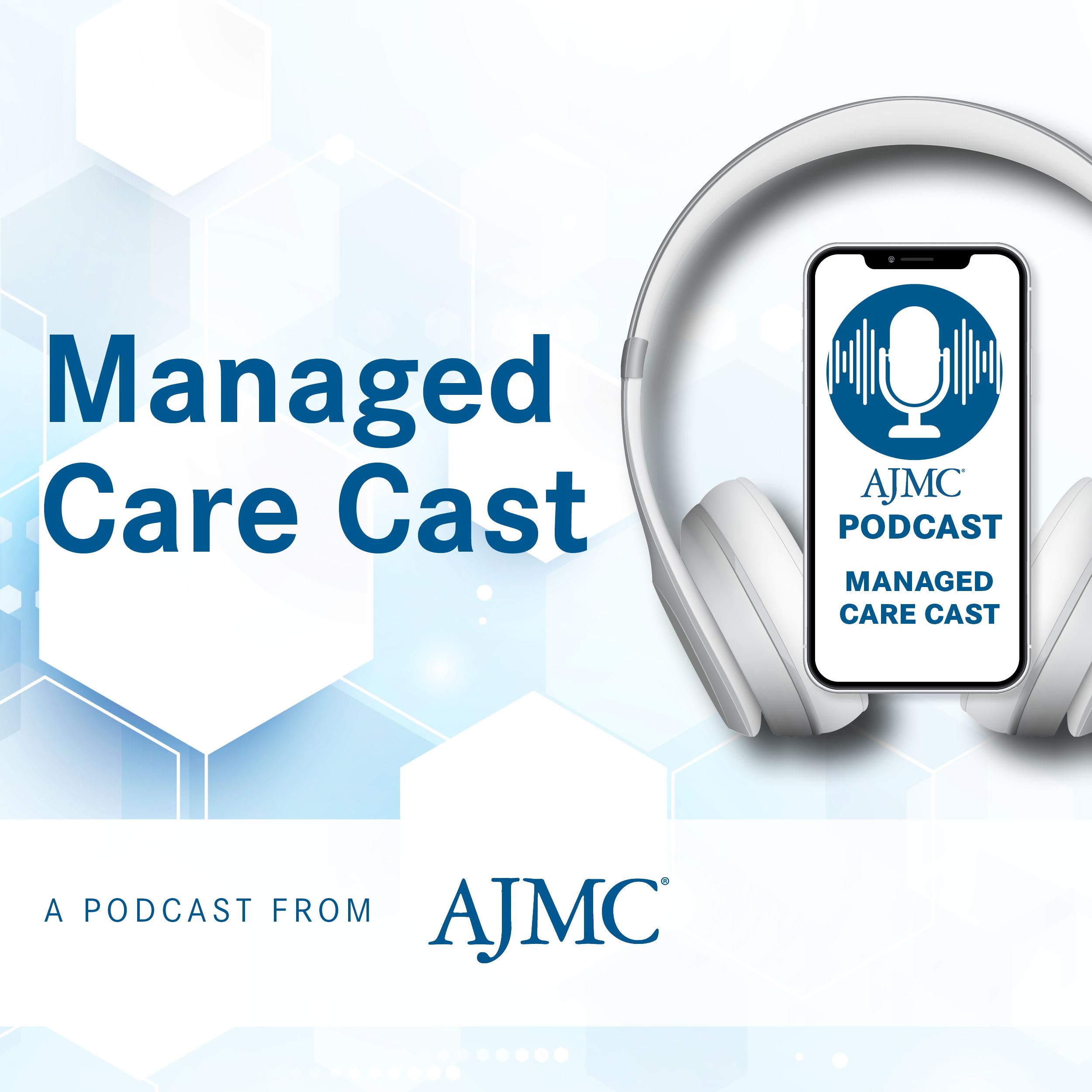News
Article
ATS 2024 Review: Innovative Treatments and Health Equity Take Center Stage
Author(s):
Among the many topics discussed at the American Thoracic Society 2024 International Conference (ATS 2024), the majority touched on barriers to health equity and access, regardless of the key focus of each talk or study. Experts examined this within the field, emphasizing the importance of enhancing data diversity, modernizing diagnostic tools, and revising regulatory standards to promote equitable health outcomes for diverse populations.
This year yielded many advances in the field of respiratory medicine, with late-breaking data being revealed for the first time at the American Thoracic Society (ATS) 2024 International Conference. The sessions showcased novel findings on Mycobacterium avium complex lung disease (MACLD), chronic obstructive pulmonary disease (COPD), and the role of inflammation in these diseases.

The ARISE study highlighted the efficacy and safety of amikacin liposome inhalation suspension (ALIS) for treating MACLD, demonstrating significant improvements in culture conversion rates and symptom management through reliable patient-reported outcome measures. ALIS was shown to achieve faster culture conversion and higher rates of negative cultures compared with a control, with a favorable safety profile.1
In another study, the phase 2a COURSE trial explored the potential of tezepelumab in reducing COPD exacerbations among patients receiving triplet inhaled maintenance therapy. Although the primary end point of reducing moderate or severe exacerbations did not reach statistical significance, notable reductions were observed in patients with higher baseline blood eosinophil counts. Tezepelumab also demonstrated improvements in lung function, quality of life scores, and a balanced safety profile, suggesting potential benefits for targeted patient groups.2
The phase 3 NOTUS trial provided compelling evidence for the efficacy of dupilumab in patients with COPD with type 2 inflammation. Dupilumab significantly reduced moderate to severe COPD exacerbations and improved lung function and quality of life compared with placebo. These findings support dupilumab’s role in managing COPD with type 2 inflammation, aligning with results from previous studies and demonstrating a consistent safety profile.3
Key data from the meeting also highlighted the benefits of early initiation and high adherence to the single-inhaler triple therapy (SITT) fluticasone furoate/umeclidinium/vilanterol (FF/UMEC/VI) for patients with COPD. One study showed that patients who began FF/UMEC/VI therapy promptly after their first COPD exacerbation experienced significantly fewer exacerbations and lower health care costs compared with those who started the therapy later. Specifically, prompt initiators had a 29% lower risk of severe exacerbations at 12 months and significantly reduced COPD-related hospital readmissions.4
The second study compared adherence and persistence between FF/UMEC/VI and another triple therapy, budesonide/glycopyrrolate/formoterol fumarate (BUD/GLY/FORM). The results indicated that patients using FF/UMEC/VI, which has a once-daily dosing schedule, had significantly higher adherence and persistence rates. At 6 and 12 months, adherence rates were higher for FF/UMEC/VI, and patients were 26% more likely to persist with this treatment compared with BUD/GLY/FORM. The researchers concluded that the simplified regimen of FF/UMEC/VI enhances treatment adherence and effectiveness, making it a preferable option for managing COPD.5
These studies underscore the importance of timely initiation and adherence to FF/UMEC/VI in improving health outcomes and reducing costs for COPD patients, which touched on another key component of this year’s meeting: equitable and accessible health care delivery.
Another late-breaking abstract found that out of 1168 patients, 75.2% managed to complete their scans. The no-shows cited common reasons like forgetting the appointment (26.9%) and wanting more information about lung cancer screening (30.8%). Compared with their White counterparts, Black patients (OR, 2.05) and those of other races (OR, 2.25) were significantly more likely to miss their low-dose CTs. Hispanic patients (OR, 1.92) and those with limited English proficiency (OR, 1.72) also had higher odds of missing their appointments. Asian American/Pacific Islander and American Indian/Alaskan Native patients didn’t show a significant difference in completion rates compared with White patients.6
Many presentations focused on addressing barriers to health equity and access, regardless of the title of their talk. Experts examined the pervasive health disparities and inequalities within the field, emphasizing the importance of enhancing data diversity, modernizing diagnostic tools, and revising regulatory standards to promote equitable health outcomes for diverse populations.
The first keynote session emphasized the transformative potential of artificial intelligence (AI) in health care while addressing the critical issue of bias in AI algorithms that could perpetuate disparities. Moderated by Michael Howell, MD, MPH, from Google, the session brought together experts to discuss AI's evolving role in health care. Fatima Rodriguez, MD, MPH, from Stanford University, and Matthew DeCamp, MD, PhD, from the University of Colorado, shared insights on AI's impact and challenges in their respective fields, focusing on cardiovascular disease and bias in medical data interpretation.7
DeCamp delved into the ethical complexities of AI, emphasizing that bias is not just a data problem but a broader social issue. He presented examples of bias in AI applications, such as disparities in chest x-ray interpretations based on demographic factors, and proposed solutions like community engagement, diversity in AI development teams, and addressing structural inequities. The concept of explainability in AI was highlighted as crucial for building trust in these technologies. Both Rodriguez and DeCamp stressed the importance of careful implementation and testing to prevent the rapid pace of AI adoption from compromising medical rigor and equity.
In the "Clinical Year in Review" session, experts tackled 4 areas with pivotal updates on acute respiratory distress syndrome (ARDS), childhood asthma, health equity, and lung cancer. However, the need to address disparities was not secluded to the health equity portion. Shewit Giovanni, MD, MSCE, Oregon Health & Science University, discussed ARDS, noting updates to the Berlin definition and the need for further studies on patient heterogeneity. She also reviewed significant COVID-19 studies and analyzed minority representation in clinical trials, finding persistent disparities in outcomes, particularly among Black patients. Giovanni called for strategies to improve minority representation and address systemic inequalities in clinical research.8
Juan Carlos Cardet, MD, MPH, University of South Florida, focused on childhood asthma, discussing community-level interventions and their impact on asthma outcomes. He referenced studies highlighting the benefits of housing mobility interventions and the association between respiratory syncytial virus infection and reduced childhood asthma prevalence. Cardet also explored the potential of biologic therapy in reducing inhaled corticosteroid doses for asthma management.
Aaron Dorian Baugh, MD, University of California San Francisco, addressed health equity, particularly in lung cancer screening. He discussed higher adverse event risks for Hispanic patients and the potential of machine learning to identify hidden drivers of inequity. Baugh highlighted the need to mitigate biases in algorithmic decision-making and featured a study showing significant variance in lung cancer screening eligibility decisions based on individual clinicians. He stressed the importance of understanding and addressing these biases to ensure equitable health care outcomes.
Matthew Triplette, MD, MPH, Fred Hutchinson Cancer Center, provided insights into lung cancer research, noting a decline in lung cancer incidence and mortality due to reduced smoking rates and improved screening guidelines. However, he acknowledged ongoing disparities in lung cancer outcomes across different populations. Triplette highlighted the need for risk-based screening approaches to equitably identify at-risk individuals and emphasized the importance of continued efforts to address disparities, enhance screening guidelines, and advance disease understanding for the benefit of all populations.
In another keynote, Hannah Wunsch, MD, MSc, Weill Cornell Medicine, delivered a presentation on the history and evolution of mechanical ventilation. She traced its development from early attempts in the 18th and 19th centuries, driven by incidents like electrocution and drowning, to significant milestones during the polio epidemic. Wunsch highlighted the impact of the iron lung, invented in 1928 by Philip Drinker, which marked a critical intervention for spinal polio but which was less effective for bulbar polio. She detailed how polio, similar to COVID-19 in its asymptomatic majority and severe outcomes for a small percentage, spurred advancements in ventilation techniques.9
Wunsch reflected on the legacy of these early innovations, which laid the foundation for contemporary critical care medicine. The evolution from disease-specific management, like polio, to comprehensive intensive care for various conditions, was driven by necessity and innovation. She also noted ongoing research into the potential benefits of negative pressure ventilation gaining renewed interest post COVID-19. This historical perspective underscores the enduring impact of early mechanical ventilation advancements on modern respiratory care and intensive care unit practices.
ATS 2024 has demonstrated significant progress in respiratory medicine through groundbreaking studies and discussions on key clinical topics. The conference also focused on the importance of addressing health disparities, with sessions examining the impact of AI, historical perspectives on mechanical ventilation, and strategies to improve health equity in clinical research and care delivery.
References
1. Daley CL, Chalmers JD, Flume PA, et al. Microbiologic outcomes from a randomized, double-blind trial of amikacin liposome inhalation suspension in adults with newly diagnosed or recurrent Mycobacterium avium complex lung disease: the ARISE study. Am J Respir Crit Care Med. 2024;209:A1033.
2. Singh D, Bafadhel M, Brightling CE, Rabe KF, Han MK, Bhutani M; COURSE study investigators. Tezepelumab in adults with moderate to very severe chronic obstructive pulmonary disease (COPD): efficacy and safety from the phase 2a COURSE study. Am J Respir Crit Care Med. 2024;209:A2782.
3. Bhatt SP, Rabe KF, Hanania NA, et al. Efficacy and safety of dupilumab in patients with moderate-to-severe COPD and type 2 inflammation: phase 3 NOTUS trial. Am J Respir Crit Care Med. 2024;209:A2996.
4. Noorduyn S, Mannino D, Dirocco K, et al. An investigation on the effects of prompt versus delayed initiation of fluticasone furoate/umeclidinium/vilanterol single-inhaler triple therapy among patients with chronic obstructive pulmonary disease in the United States (abstract). Am J Respir Crit Care Med. 2024;209:A3302.
5. Noorduyn S, Young C, Lee L, et al. Adherence and persistence with fluticasone furoate/umeclidinium/vilanterol and budesonide/glycopyrrolate/formoterol fumarate among patients with chronic obstructive pulmonary disease: a real-world United States study (abstract). Am J Respir Crit Care Med. 2024;209:A3301.
6. Leavitt A, Bahgat J, Hundal J, Siccardi H, Steele C, and Bernstein EL. Lung cancer screening completion dates demonstrate disparity between patient populations (abstract). Am J Respir Crit Care Med 2024;209:A1091.
7. Grossi G. As AI utilization advances in health care, experts at ATS 2024 share insights. AJMC®. May 20, 2024. Accessed May 24, 2024. https://www.ajmc.com/view/as-ai-utilization-advances-in-health-care-experts-at-ats-2024-share-insights
8. Grossi G. Exploring Critical Advances in ARDS, Asthma, Lung Cancer, Health Equity at ATS 2024. AJMC. May 20, 2024. Accessed May 24, 2024. https://www.ajmc.com/view/exploring-critical-advances-in-ards-asthma-lung-cancer-health-equity-at-ats-2024
9. Grossi G. Learning From Past Innovations to Advance Ventilation Use in Respiratory Conditions. AJMC. May 21, 2024. Accessed May 24, 2024. https://www.ajmc.com/view/learning-from-past-innovations-to-advance-ventilation-use-in-respiratory-conditions





